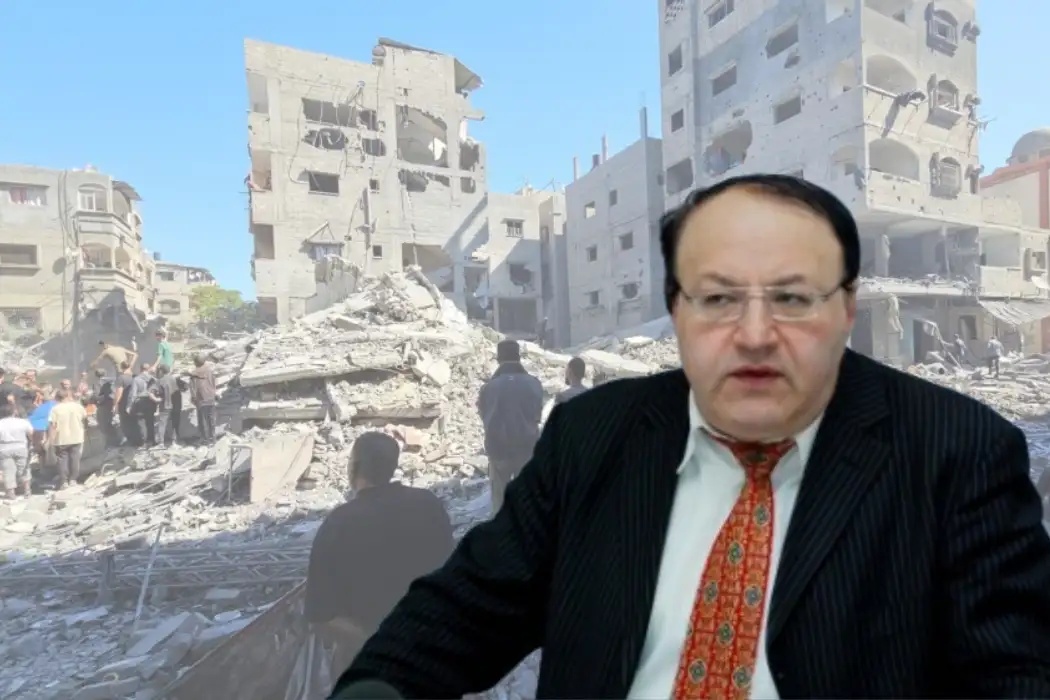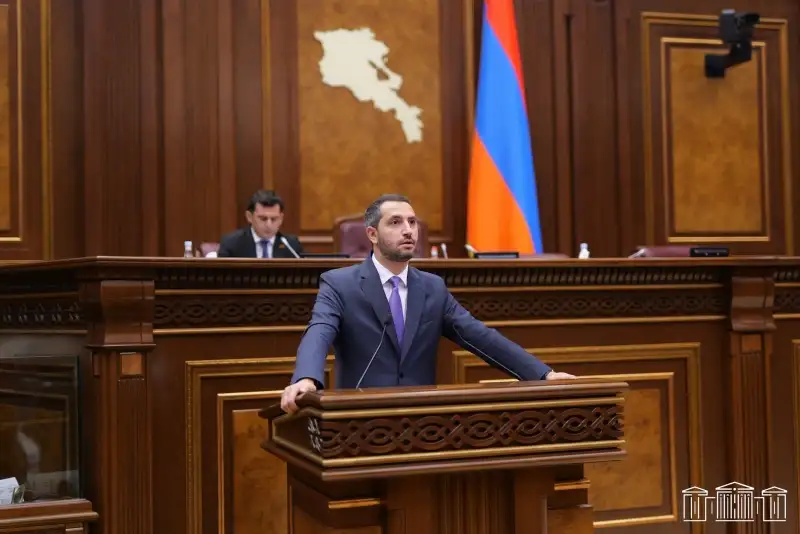According to foreign media reports, after several weeks of bombings and airstrikes, the Israeli army launched an attack on Gaza City tonight.
Radar Armenia spoke with Hmayak Hovhannisyan, President of the Union of Political Scientists of Armenia, on this topic.
-Israel has launched an attack on Gaza. The UN commission has recognized Israel's actions in Gaza as genocide. How can we characterize this fact?
-This tension began in the form of wars on September 27, 2020, when Azerbaijan attacked Artsakh and, ignoring the agreements reached with the Minsk Group co-chairs, brought the Artsakh Armenians to their knees by brute force. After that, in February 2022, Russia decided to get the Ukrainians to their knees in the same way - by military means, to resolve issues in relations with Ukraine. Now Israel is doing the same: what is permissible for one cannot be excluded for another. We have seen that Israel is trying to resolve the unresolved 10-year-old relations with the Arab people of Palestine in the same way. Why am I drawing these parallels? I am imitating those tragic events because precedents, when they are created, are passed on like a baton. This is typical of international relations, so we should not allow the resolution of issues by force at all. If Azerbaijan was able to carry out ethnic cleansing in Artsakh, then why should Israel not be able to do the same in Palestine? So, what is happening in one part of the planet cannot fail to find a response in another part. After the Cold War, not democratic stability was established, but an atmosphere of permanently flaring hot wars.
-If that hot war situation continues here, and the responses of the international community remain mainly at the level of resolutions, what impact can it have on the stability and global security of our region?
- I am saying clearly that it could not have happened as it did, do you understand? In that atmosphere, after the ethnic cleansing in Artsakh, where for 30 years attempts were made to regulate relations in a civilized manner without the use of force, the use of brute force could not but be repeated. When the Muslim countries, the Organization of the Islamic Conference, which unites Islamic countries, including Azerbaijan, approved Ilham Aliyev's decision to resolve the issue by war at the summit of that organization, the day after September 27, I told our political scientists that Israel would definitely take advantage of that precedent of resolving issues by force. That is why Israel was arming Azerbaijan and pushing Baku to attack Artsakh an hour earlier. It was clear to me from the first day of the 44-day war that Gaza would soon also appear in the situation of Artsakh. I understood the deep-seated motivations of Israel supporting Azerbaijan, arming it, and targeting Artsakh with weapons—Israel's desire to create a precedent for successful ethnic cleansing or genocide—but I couldn't understand the unanimous support of the member states of the Organization of Islamic Conference for Baku's plan to bring Artsakh to its knees. The fact that the Iranian leadership didn't understand it either was simply astonishing.
In fact, the Islamic world, by supporting Baku and showing indifference to the fate of the Artsakh Armenians, encouraged Israel's genocide of the Arabs of Gaza. Today, mass torture is taking place in Gaza, and methods of mass extermination are being used. Now you may object to me: if my parallels are valid, then why has Israel so far failed to repeat the ethnic cleansing carried out by Aliyev in Gaza? It fails for a straightforward reason: Egypt keeps its border closed to Palestinian refugees, unlike the authorities of the Republic of Armenia, which did not prevent the entry of Artsakh Armenians into Armenia. The Republic of Armenia received the Artsakh people without a murmur. It provided them with the necessary support, while the Egyptian authorities have closed the border and do not allow the Palestinians to escape from Israel's attacks. The Arab people of Palestine have no chance of escape because Egypt is very strongly resisting the prospect of the Arab people leaving Gaza. That is precisely why Israel is unable to achieve the same result in Gaza that Aliyev achieved in Artsakh in one day. If the Arabs of Gaza had the means, they would also flee. Still, the leaders of the Arab countries refuse to accept them, opposing the implementation of Benjamin Netanyahu's plan to de-Arabize Gaza.
Lilit Abrahamyan


















